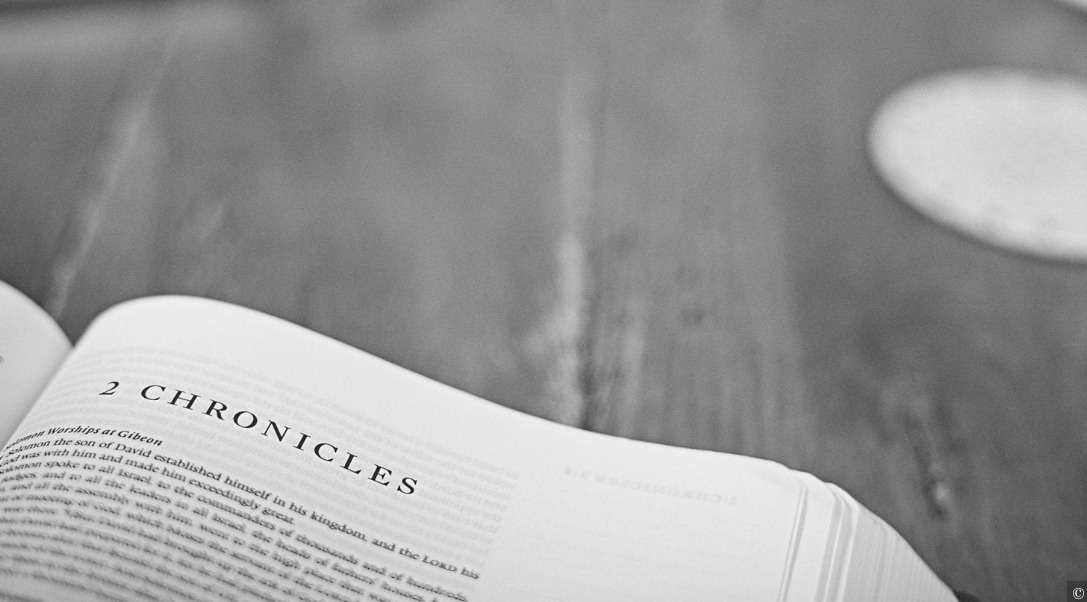The Prayer Of Jehoshaphat

8 minutes to read
“...nor do we know what to do, but our eyes are on You.”2 Chron 20:12b
One thing that we can expect in life is to expect the unexpected. Sometimes we are doing well spiritually and a new trial emerges in our life which we totally did not see coming. I remember when my 2nd son Ezra slipped one afternoon from a height of 3 feet and hit his head on the edge of a wooden cupboard and fell to the ground. Suddenly our pleasant afternoon was turned into an emergency situation. We had to rush to the hospital emergency room as he was not opening his eyes and responding well after the fall. But as my wife and I drove not knowing what was going to happen we had a calming assurance that God was with us because He has accepted us as His children through Christ. By the grace of God, the scan revealed that there was no serious damage and that our son could be discharged from the hospital the next day. We personally do not like such unexpected developments and would prefer for our lives to be sailing smoothly. Yet God in His amazing wisdom and sovereignty wants to teach us some lessons through such unexpected developments.
One of the marks of true believers is that in high pressure times they know how to get on their knees before their God.
When we look at 2 Chronicles chapter 20, we see the God-fearing Jehoshaphat having to face a very serious and unexpected development in his life. He had zealously begun to make good reforms in the religious and civil life of the nation by appointing proper judges and prioritizing the teaching of the Law of God. However, he was not a perfect king, shown by the fact that he made an alliance with the wicked king Ahab for a military campaign. So, God humbled him and taught him a difficult lesson when he would have wanted to focus on ruling well. An intimidating alliance of 3 kings came against Jerusalem. The news that the enemy was only about 30 kilometres away in En-Gedi must have been very concerning. Maybe the evil alliance wanted to loot the vast treasure that Solomon was blessed with or perhaps they sensed weakness in Jehoshaphat. They had crossed the Jordan and there was no turning back for them.
One of the marks of true believers is that in high pressure times they know how to get on their knees before their God. The unbelievers only look at life and its problems from a natural and fleshly point of view. Jehoshaphat knew he had no place else to go but to His great God. It is very encouraging for all of God’s people to see leaders acknowledging their weakness and throwing themselves upon the Almighty God. The godly reaction from the king was not to assemble his impressive army or send messengers to nearby allies but to announce a day of fasting and prayer v3-4. Fasting does not add some merit points for a believer but it is a way to show urgency and utter dependence upon God to intervene.
The prayer itself (vv5-12) is one of the most beautiful and moving prayers in the Bible. The king is not expressing doubts when he said “O Lord our God are you not God in the heavens? (v6)” Rather as he approached God, he was acknowledging that the God of their fathers is the Lord of the universe. Jehoshaphat had been feeding on God’s word and he began his prayer focusing on who Yahweh truly is. There were many regional deities who people believed had a regional scope and influence but Jehoshaphat is saying to God that He alone rules from the heavens. There are many kingdoms here on earth with large armies and resources at their disposal but the King of Heaven truly is in control over all. How comforted we will be when we begin our prayers with such an acknowledgement of who our God truly is. No matter the nature and severity of our trials we will begin to find great encouragement in our prayers if we truly know whom we are approaching.
Fasting it is a way to show urgency and utter dependence upon God to intervene.
In vv7-9 Jehoshaphat recounts the great deeds of God that had been accomplished in Israel’s history. God made a covenant with Abraham, his friend. God had promised to bring in the great blessing of salvation ultimately through Abraham’s descendant (Gen 12:1-3) and towards that great end He had brought judgment on the Canaanite nations and given Israel the land. Not only did they get the land but they were allowed by God to let Solomon build a great temple. They had the unique privilege to draw near to their covenant God in times of trouble. Now Jehoshaphat was reminding God about Solomon’s great prayer at the dedication of the temple and he was standing right in front of it. God had answered Solomon’s prayer by allowing His visible glory to fill the Temple. Jehoshaphat was now standing on those great promises and hoping for a great intervention. When those difficult times hit us, how stable and anchored we would be, if we were people who think deeply about the great deeds and promises of God. When we are soaked with the gospel, we realize even in these difficult moments that God is for us and not against us in Christ Jesus.
In vv10-12 Jehoshaphat finally began to pour out his request and burdens before the Lord God Almighty. Basically, he was very carefully presenting his case that there were some people whom God had spared during the conquest under Moses and Joshua. And now those very people who should be grateful have risen up against us to wipe them out. There is a plea for God to see and act justly. And then the king says very beautifully, “Our God, will you not judge them?” (v12) These words remind us about the Psalms of “Lament” in the Bible. God’s people do face a lot of opposition and injustice in this world, but they can cry out to their King to do rightly. One thing we do know for sure is that at the end of world history all accounts will be settled by Christ and those found to be His enemies will receive a full recompense.
In addition to this request Jehoshaphat does something very important. He acknowledged the weakness and inability of the people of God to overcome this present crisis. Furthermore, he said that “our eyes are upon you v12b”. How few and uncomplicated these words are but how powerful and God-honouring they are! Imagine a father hearing these words as his child is struggling with some sickness and expecting the father to get him his medicine in the middle of the night. Imagine the child saying “I need help daddy and my eyes are upon you alone for my need.” Any earthly father would find it a great joy to act on behalf of his child. The rest of the chapter goes on to tell us how God promised deliverance and gave it miraculously.
Jehoshaphat showed us how important was the role of a king in the Old Testament’s unfolding redemption story. The kings who acted wickedly usually led their people down a path of sin and judgment. But there are a few exceptions who give us a hint that the ultimate King who would bring in everlasting righteousness was coming. The humble trust and dependence of the king of Judah points us to the Messiah Jesus who was to come. The Lord Jesus lived a life of complete trust and yielded Himself to His Father’s plan perfectly. On the cross the enemy came against Him and there was no dramatic deliverance for Christ but instead deafening silence from Heaven. This was so because by His propitiating sacrifice Christ was becoming the ultimate deliverer of His people. By faith in Christ, we are delivered from the worst enemy namely death and brought into life everlasting. In this new life we are to trust God’s great character and love in the midst of our challenges and troubles. May the Lord help us to keep looking in faith to our God of the everlasting covenant in Christ.




